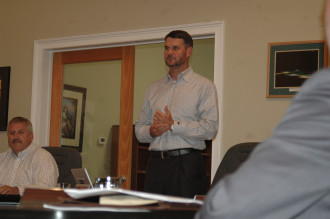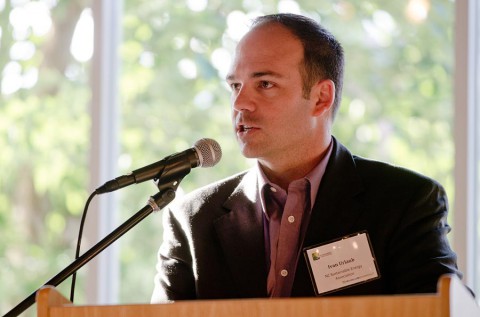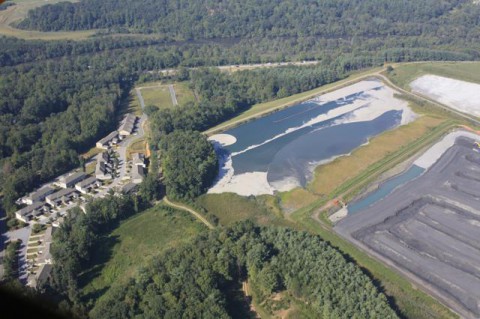“This has been a spiritual experience that none of us will ever forget. COVID separated us; Helene united us!”


“This has been a spiritual experience that none of us will ever forget. COVID separated us; Helene united us!”

On Monday, July 11, the Western North Carolina Air Quality Agency renewed Duke Energy Progress’ Title V permit for its Lake Julian coal plant facility. This type of operating permit is regulated under the federal Clean Air Act and must be renewed every five years by most businesses whose facilities emit hazardous air pollutants, whether […]

Of the 30 utility-scale solar projects built in the Southeast last year, 21 were in North Carolina. That’s the kind of good news business leaders heard when they gathered June 19 in Asheville to celebrate the successes and discuss the challenges facing the rapidly growing renewable energy industry. (pictured: Ivan Urlaub of the N.C. Sustainable Energy Association; photo by Max Cooper)
The North Carolina Utilities Commission wants to hear from you: On Tuesday, March 5, the commission will hold a local public hearing on Progress Energy Carolinas’ request to raise residential, commercial and industrial electricity rates by an average of 12 percent.
Progress Energy, the biggest electric company serving homes in Buncombe County recently merged with Duke Energy, making it the largest utility company in the U.S. And it’s coming under fire from a variety of groups including the AARP, which is urging residents to fight against rate hikes.

A coalition of local and national environmental groups announced plans Jan. 19 to sue the U.S. Environmental Protection Agency to force the release of long-awaited rules regulating coal ash as hazardous waste. Despite evidence of leaking ponds and poisoned ground water, the EPA has delayed issuing new rules for nearly two years. Meanwhile, local environmentalists […]
Federal Energy Regulatory Commission found that “the Proposed Transaction … will thereby have an adverse effect on competition” and gave the utilities 60 days to remedy the identified problems.

The North Carolina Utilities Commission opened a docket yesterday to consider an independent statewide energy-efficiency program called NC SAVE$.

The state legislature’s attempt to boost energy efficiency and increase alternative sources, Senate Bill 3, may go too far into consumer pocketbooks.